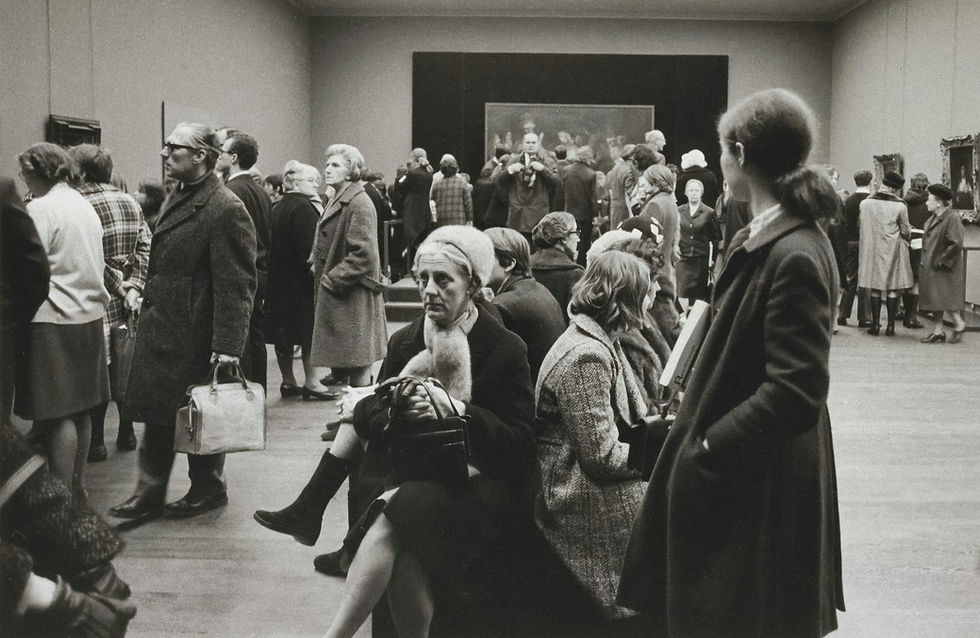10 Strange and Surprising Truths About Loneliness
- Suzzanne Suleiman | MS, LLP
- Oct 29, 2025
- 3 min read

By Suzzanne Suleiman, LLP, MSCP
I’ve spent years sitting with people who think they’re the only ones who feel this way.
Loneliness often comes with shame, secrecy, or the belief that “something’s wrong with me.”
The truth? Loneliness isn’t a flaw—it’s just your body and brain waving a little flag that says, “Hey, we need some connection over here.”
And as heavy as it can feel, some of what the science says about loneliness is downright fascinating—and might even make you say, “Wow… okay, so it’s not just me.”
Here are ten lesser-known truths about loneliness—blending psychology, neuroscience, and a few things I’ve learned in the therapy chair.
Loneliness Can Be Contagious
Yes, apparently you can “catch” it. Research shows loneliness can spread through social networks. If someone close to you is lonely, you’re more likely to feel lonely too—like secondhand smoke for the soul. Which means… good reason to be intentional about your people. (And maybe schedule a coffee with the friend who always laughs too loud.)
It Triggers the Brain’s Pain Circuits
Loneliness activates the same brain regions as physical pain—especially the anterior cingulate cortex. That’s why rejection can feel like a gut punch. No, you’re not being dramatic—your nervous system really is saying, “Ouch.”
You Can Feel Lonely in a Crowd—or a Marriage
Loneliness isn’t about being alone. It’s about not feeling seen or emotionally connected. Some of the loneliest people I’ve met are partnered, popular, or successful. (It’s like being at a party where everyone’s dancing… and you’re just holding the coats.)
Chronic Loneliness Literally Shrinks Your Brain
Long-term loneliness can reduce the size of the hippocampus and prefrontal cortex—areas that handle memory, decision-making, and emotional regulation. Translation: connection helps keep your brain sharp.
It’s Riskier Than Smoking
Chronic loneliness raises your risk of early death by 26%—making it more dangerous than obesity, heavy drinking, or air pollution. Basically, connection is a health supplement you can’t buy at the vitamin store.
Your Immune System Knows When You’re Lonely
When we’re socially disconnected, inflammation rises and antiviral defenses drop. It’s like your body starts preparing for injury—because somewhere deep down, it knows we survive better in groups.
Lonely Brains Go on High Alert
When you feel excluded, your brain’s threat-perception system ramps up. You might find yourself more anxious, jumpy, or easily overstimulated. (And suddenly, even the grocery store line feels like too much.)
Animals Experience Loneliness Too
From monkeys to octopuses, many animals suffer when socially isolated. My personal favorite? Parrots will actually get “sad” if they’re kept from socializing. We’re not the only species built for connection.
Scrolling Won’t Fix It
It’s not the phone—it’s how we use it. Passive consumption (endless scrolling, lurking, watching others live) can make you feel more left out. Real connection—even online—needs some back-and-forth.
We Hide It
Shame keeps many people from admitting how disconnected they feel. The number of people who say “I’m fine” while silently starving for connection? Way higher than the statistics show.
Why This Matters
Loneliness isn’t a fringe issue—it’s a public health crisis. But knowing the facts is powerful. It helps us recognize what’s really going on, both in ourselves and in the people we love.
And here’s the good news: connection doesn’t have to mean overhauling your social life. It can start small—a shared meal, a phone call, a walk with someone who gets you.
So if you’re feeling it, you’re not broken—you’re human. And you’re not alone in finding your way back.
PS. You are not alone



Comments